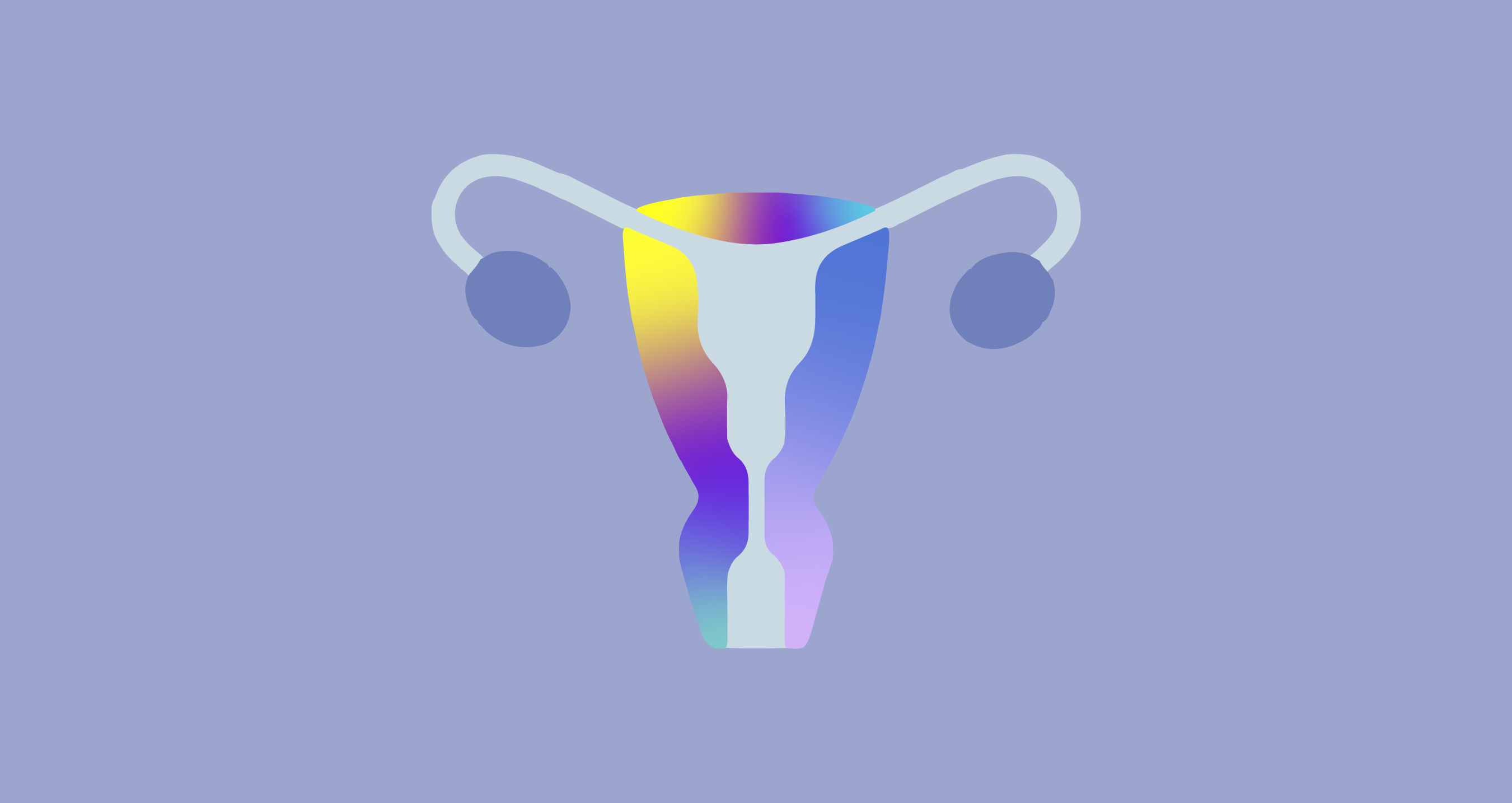Everything You Need to Know About Ovarian Stimulation

Medically reviewed by Linda Streety, RN, BSN
Whether you’re starting an in vitro fertilization (IVF) cycle or freezing your eggs, you will undergo a process called ‘ovarian stimulation’. Below, we’ll walk you through what that process looks like, the types of hormone medications used, and what to expect!
What is ovarian stimulation?
Ovarian stimulation is the first step of IVF, which involves a series of procedures that enable an egg and sperm to come together in a lab before being implanted in the uterus.
During ovarian stimulation, your reproductive endocrinologist (RE) will use hormone medications to stimulate your ovaries to produce multiple follicles (small sacs of fluid that contain immature eggs). Once the eggs mature, they are retrieved from the follicles in a minor surgical procedure known as an “egg retrieval.”

The Ovarian Stimulation Process
Before starting ovarian stimulation, your RE will use your baseline test results to determine a medication protocol. This protocol aims to help you develop as many mature eggs as possible in a way that’s safe for your body. Ovarian stimulation typically involves anywhere between 8-14 days of hormone medication before egg retrieval. Below, we’ll outline the steps you can expect during ovarian stimulation:
Step 1: Preparing Ovaries for Stimulation
Depending on your baseline results, your RE may start you on IVF medications before ovarian stimulation. These medications may include:
- Birth control pills - These may help your ovaries respond to the stimulation medications, prevent ovarian cysts, and control the timing of your cycle.
- Lupron (leuprolide acetate) - A GnRH agonist, this medication prevents premature ovulation when taken before your cycle begins.
- Estrace/estradiol valerate (estrogen) - Your RE may start you on estrogen before your stimulation cycle to improve your ovarian response.
Step 2: Encouraging Follicle Growth
Each day, you will inject yourself with medications that encourage the growth of your follicles. The medications you may take include:
- Gonal-F/Follistim (follitropin alfa) - This gonadotropin drug contains recombinant follicle stimulating hormone (FSH), a hormone that occurs naturally in your body which encourages follicle growth.
- Menopur (menotropins) - This gonadotropin drug contains both FSH and luteinizing hormone (LH), both of which encourage follicle growth.
- Clomid (clomiphene citrate) - This drug stimulates the release of estrogen in the body, and can be used with other follicle stimulating drugs to encourage follicle growth.
Step 3: Maintaining Follicular Growth While Blocking Ovulation
At a certain point during ovarian stimulation, your RE will add medications to prevent ovulation. This gives you the best chance of developing the optimal number of eggs without ovulating them before they can be retrieved. The medications your RE may add to your protocol include Ganirelix or Cetrotide (cetrorelix).
Step 4: Triggering Eggs to Mature For Retrieval
When several of your follicles have reached about 17-18mm in diameter (usually after 10-13 days), your doctor will schedule your trigger shot. This shot is carefully scheduled to occur 34-36 hours before egg retrieval to give your eggs a chance to mature. To mature, your eggs will undergo meiosis, meaning that they will shed 23 out of their 46 chromosomes. Medications that trigger eggs to mature for retrieval include:
- hCG - This medication contains human chorionic gonadotropin (hCG), which is very similar to LH and triggers your eggs to mature.
- Lupron (leuprolide) - If you have not already taken Lupron to down-regulate you during your cycle, as with the antagonist protocol, it can be used to trigger your eggs to mature.
You’ve done it, your ovarian stimulation protocol is complete!
You can now move on to the next important phase of the process, egg retrieval. You will be lightly sedated as your RE inserts an ultrasound-guided needle through your vaginal wall into each follicle to retrieve your eggs. Afterward, an embryologist will examine the eggs to determine how many were mature. At this point your embryologist will either freeze your eggs or fertilize them with your partner’s or a donor’s sperm. After fertilization, your embryologist will prioritize which embryos are best suited to freeze or transfer to complete the IVF process.
It is important to note that not all your eggs may be mature, and not all of your mature eggs may fertilize. At each step in the IVF process, some eggs or embryos do not make it to the next step. This is normal and expected, which is why your RE will try to optimize the number of eggs retrieved. The more eggs retrieved, the better your overall chance of success.

If you do not get as many mature eggs as you hoped during your ovarian stimulation process, it may help to know that patients tend to have more success during successive IVF cycles. This in part because your RE will use data from your ovarian stimulation cycle to better tailor your medication protocol on successive cycles. However, the data shows that even if you have the exact same medication protocol, you are likely to have a better outcome during your next cycle.
What to expect from your ovarian stimulation process
It’s time consuming, even though it only lasts 2 weeks!
Many people are surprised by how much time and effort ovarian stimulation takes. During ovarian stimulation, you will need to go to the fertility clinic frequently for blood draws and transvaginal ultrasounds to check on your hormone levels and follicle growth. As you get close to the time for your trigger shot, you may have appointments every morning. This can require advance planning with work, childcare, and transportation.
Self-administering shots can be intimidating, but it can also be empowering.
Undergoing ovarian stimulation is a way of taking control of your fertility, and many people feel empowered by the process. That said, there are things you can do to make the process smoother. The first is to understand how to administer the shots. There are many videos available online that walk you through the preparation of each medication, so you can take it step-by-step.
Ovarian stimulation shots are administered subcutaneously, so the needle is relatively short and often feels just like a pinch. It may help to change the spot where you administer the injections each day. You can numb your skin with an ice cube, or use a device such as the ShotBlocker or Buzzy to help reduce pain during the injection. You can also ask your partner, a friend, or family member to administer the shots for you.
Medication side effects can be challenging.
Since ovarian stimulation medications are hormones that naturally occur in the body, they may produce side effects similar to what you experience during your menstrual cycle. So while you may have more energy during the follicular phase of your cycle when you have higher estrogen, you may experience tiredness, nausea, acne, weight gain, breast tenderness, and/or bloating after egg retrieval. You may also experience bloating and pain in your ovaries. If you are experiencing any of these symptoms, talk to your nurse or RE.
Rest matters.
Ovarian stimulation is a time to get plenty of sleep (1) and avoid high-impact exercise. You may also need a lot of rest after egg retrieval. Planning ahead to remove activities and stressors before you begin ovarian stimulation will help you have a successful cycle.
How to prepare for ovarian stimulation
Take supplements aimed at optimizing egg quality
Your RE may recommend that you take supplements in the months before you plan to do ovarian stimulation to help you optimize your egg quality. These supplements include CoQ10, which may improve egg quality for patients older than 38 (2), and prenatal vitamins with 600 mcg of folic acid, which will ensure that you’re getting sufficient micronutrients.
Organize your IVF experience
During ovarian stimulation, you will be keeping track of many things: appointments, medication dosages and timing, test results, follicle sizes, and more. To help you track and prepare for each step of ovarian stimulation, Alife Health developed a free app that simplifies your IVF journey.
Avoiding Ovarian Hyperstimulation Syndrome (OHSS)
Ovarian Hyperstimulation Syndrome (OHSS) is an uncomfortable and potentially dangerous condition that may occur after egg retrieval if you developed a large number of follicles (more than 20) and/or had high estrogen levels before the trigger shot was administered. During OHSS, fluid builds up in the abdominal cavity. While OHSS used to be more common during IVF, the development of the antagonist protocol with a Lupron trigger has mostly eliminated severe cases of this condition.
The symptoms of OHSS include bloating, constipation, reduced urinary output, and abdominal pain. If you suspect that you are experiencing OHSS, you may consider contacting your fertility clinic.
To manage mild OHSS, your RE may recommend a high protein diet, plenty of electrolytes and fluids, and an over-the-counter stool softener.
Recent Articles
References
-
Yao, Q.-Y., Yuan, X.-Q., Liu, C., Du, Y.-Y., Yao, Y.-C., Wu, L.-J., Jiang, H.-H., Deng, T.-R., Guo, N., Deng, Y.-L., Zeng, Q., & Li, Y.-F. (2022). Associations of sleep characteristics with outcomes of IVF/ICSI treatment: a prospective cohort study. Human Reproduction, 37(6), 1297–1310. https://doi.org/10.1093/humrep/deac040
-
Ma, L., Cai, L., Hu, M., Wang, J., Xie, J., Xing, Y., Shen, J., Cui, Y., Liu, X. J., & Liu, J. (2020a). Coenzyme Q10 supplementation of human oocyte in vitro maturation reduces postmeiotic aneuploidies. Fertility and Sterility, 114(2), 331–337. https://doi.org/10.1016/j.fertnstert.2020.04.002
Share this
Recent Articles

Learn everything you need to know about IVF
Join the newsletter for IVF education, updates on new research, and early access to Alife products.



